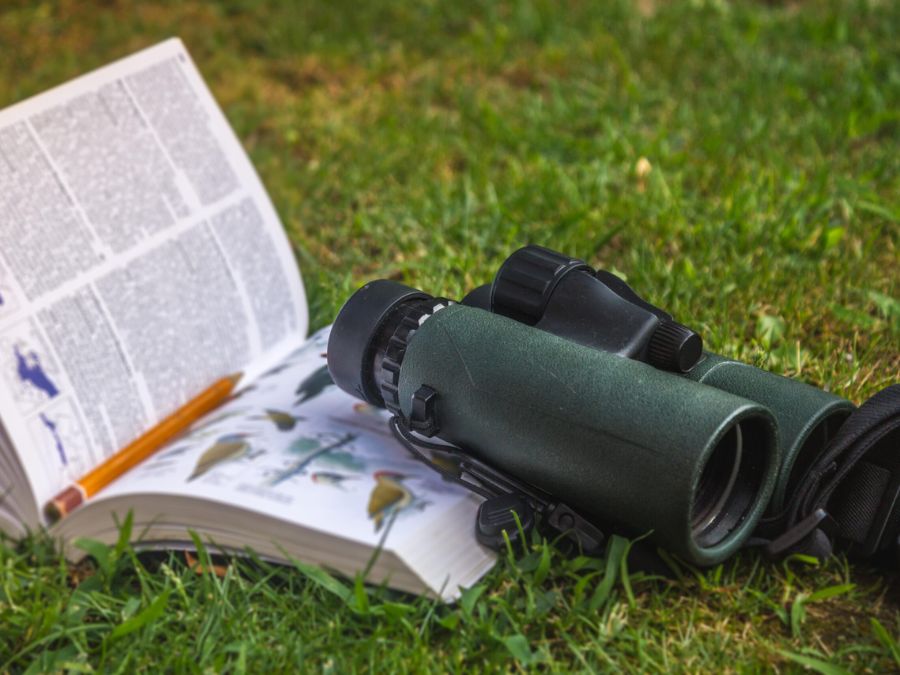Bird Watching in North Carolina An Amateur’s Guide
Are you interested in bird-watching? North Carolina is a great place to start. With its diverse habitats and rich avian diversity, it offers ample opportunities to observe and learn about different bird species.
As an amateur bird-watcher, you can explore the state’s parks, wildlife refuges, and other natural areas to discover new birds and add them to your life-list. Discover more about A Look at the Smoky Mountains Biodiversity hotspot in North Carolina
To get started with bird-watching in North Carolina, there are several things you need to know. First, you should research the best locations for bird-watching based on the time of year and the types of birds you want to see. Second, it’s important to learn how to identify different bird species by their physical characteristics, behavior patterns, and vocalizations. Thirdly bring the right gear such as binoculars or a camera with telephoto lenses so that you can observe birds from a safe distance without disturbing them.
By following these tips and joining local groups or tours led by experienced guides, you can enhance your skills as a birder while exploring some of North Carolina’s most beautiful natural areas.

Research the Best Locations for Bird-Watching
If you’re looking for the best spots to catch a glimpse of some rare feathered friends, you’ll want to check out these top birding spots in North Carolina. The state is home to a diverse range of habitats, from the mountains in the west to the coast in the east, making it an ideal destination for bird enthusiasts.
Some of the top locations for bird-watching include Cape Hatteras National Seashore, Great Smoky Mountains National Park, and Pea Island National Wildlife Refuge. In addition to these popular sites, there are also many lesser-known areas that offer excellent opportunities for bird-watching.
Keep in mind that certain species are more active during specific times of the year due to seasonal migrations. By researching ahead of time and planning your trip accordingly, you can increase your chances of spotting some truly remarkable birds while exploring North Carolina’s beautiful natural landscapes.
Learn How to Identify Different Bird Species
Get ready to feel the excitement of recognizing various feathered creatures as you learn how to identify different bird species! Identifying birds is a crucial aspect of bird-watching, and it requires a lot of patience and practice.
Before identifying any bird species, it’s essential to understand their behavior, which can help in narrowing down their identification. One common mistake that amateurs make while identifying birds is overlooking the small details like head shape, beak length, or wing patterns. Paying attention to these minute details helps in correctly identifying the bird species.
To identify birds better, it’s helpful to observe their behavior like foraging habits, flight patterns, and vocalizations. With time and practice, recognizing different bird species will become more manageable.

Bring the Right Gear
Bringing the right gear is essential for successfully exploring and experiencing the great outdoors. When bird-watching in North Carolina, there are a few essential equipment pieces that you should always have with you.
Firstly, invest in a good pair of binoculars that’ll allow you to spot birds even from a distance. A field guidebook is also helpful in identifying different bird species and learning about their habitats.
Proper attire is equally important when venturing out into nature. Wear comfortable clothes that won’t restrict your movements, such as loose-fitting pants and breathable shirts. Choose footwear appropriate for the terrain; hiking boots or sturdy sneakers are ideal for rugged trails while waterproof shoes come in handy during wet weather conditions. Donning a hat or cap can protect your head from sunburns or raindrops, while sunscreen lotion helps prevent skin damage caused by sunlight exposure.
Remember that being prepared with the right gear can make all the difference between an enjoyable bird-watching experience and an uncomfortable one.

Join Bird-Watching Groups and Tours
You’ll enjoy a richer and more meaningful experience if you join local bird-watching groups or sign up for guided tours. Being part of a group allows you to learn from experienced birders, as well as share your own knowledge and observations. You’ll also get to explore new areas that you might not have discovered on your own, increasing your chances of spotting different species.
Finding local bird watching groups is relatively easy in North Carolina. There are many organizations that cater to both novice and experienced birders alike. The Audubon Society of North Carolina, for example, has chapters throughout the state that offer field trips and educational programs. Similarly, the Carolina Bird Club holds regular meetings and events where members can share their passion for birds with others who feel the same way.
Joining these groups is a great way to meet like-minded people who share your interests while learning about the benefits of bird watching firsthand.

Practice Ethical Bird-Watching
Make sure to always be respectful of the wildlife around you by following ethical bird-watching practices, advises any responsible birder.
Respectful observation is key in bird conservation, as it ensures that birds can continue to thrive in their natural habitat without being disturbed or harmed.
Some ethical bird-watching practices include keeping a safe distance from birds and their nests, avoiding loud noises and sudden movements, refraining from feeding or touching birds, and not trespassing on private property.
By practicing these guidelines, you can enjoy watching birds while also protecting their welfare and preserving their environment for future generations to appreciate.
Track Your Sightings
Tracking your bird sightings is an excellent way to keep a record of the species you’ve observed and to contribute to citizen science initiatives. There are many birding apps available that can help you with this task. These apps allow you to easily enter information about the birds you’ve seen, including location, date, and time of day. Some even have features that can help identify the species based on their appearance or call.
In addition to keeping a personal record of your sightings, it’s also important to share them with fellow birders. This not only helps others learn about the birds in the area but also contributes valuable data to scientific research. Many apps allow you to share your sightings with other users or submit them to larger databases for analysis.
By doing so, you can help scientists better understand changes in bird populations over time and take steps towards conservation efforts. So don’t forget to track and share your sightings on your next bird-watching adventure!

Enjoy the Experience
As you embark on your bird-watching journey in North Carolina, it’s essential to keep in mind the importance of connecting with nature. Take a moment to immerse yourself in the surroundings and appreciate the sights and sounds of these beautiful creatures.
Bird-watching is an excellent way to relax and unwind, allowing you to escape from the hustle and bustle of everyday life while enjoying the peacefulness of nature’s beauty. Finally, don’t forget to take a step back and appreciate the stunning birds that call North Carolina home – their vibrant colors, intricate patterns, and unique behaviors are truly something to be admired.
Connect with Nature
When you step outside and feel the cool breeze on your skin, let nature embrace you in its calming and healing presence. As an amateur bird-watcher in North Carolina, connecting with nature is an essential part of the experience.
Mindful observation of birds in their natural habitat requires a deep connection with the surrounding environment. Research has shown that spending time outdoors and engaging in activities such as bird-watching can have therapeutic benefits for both physical and mental health. Being surrounded by nature can reduce stress levels, lower blood pressure, improve cognitive function, and increase overall happiness.
When observing birds in their natural habitat, take a moment to breathe deeply and appreciate the beauty around you. Connecting with nature through bird-watching can be not only educational but also a restorative practice for your well-being.
Relax and Unwind
Now that you’ve learned about the importance of connecting with nature, it’s time to delve into another aspect of bird-watching in North Carolina: the relaxation and therapeutic benefits it offers.
As an amateur bird-watcher, immersing yourself in the natural world can be a form of nature therapy that promotes feelings of calmness and mindfulness. By taking a break from the hustle and bustle of daily life, you can unwind amidst the serene environment and appreciate what nature has to offer.
Bird-watching has been found to have numerous health benefits, including reducing stress levels, lowering blood pressure, and improving mental wellbeing. Observing birds in their natural habitat can also encourage physical activity through hiking or walking trails.
Additionally, being able to identify different species of birds can provide a sense of accomplishment and boost self-esteem. So why not take advantage of all these benefits while exploring the beautiful scenery North Carolina has to offer?
Whether you’re a seasoned birder or just starting out, there’s no better way to relax and unwind than by bird-watching in this idyllic state.

Appreciate the Beauty of North Carolina’s Birds
Immerse yourself in the beauty of North Carolina’s avian inhabitants and discover their unique colors, patterns, and behaviors. To fully appreciate the birds of North Carolina, it’s essential to have a good pair of binoculars and a camera.
With these tools, you can observe the birds up close without disturbing them. When taking photographs, be sure to use natural lighting and avoid using flash as it may startle or harm the birds.
North Carolina has several bird watching events throughout the year for enthusiasts to enjoy. These events are usually led by experienced birders who can help identify different species and provide useful tips on how to photograph them.
Attending these events not only allows you to learn more about North Carolina’s bird population but also gives you an opportunity to connect with other like-minded individuals who share your passion for bird watching.
Exploring North Carolina’s Diverse Landscape
Congratulations on taking the first steps towards becoming a successful bird-watcher in North Carolina! By researching the best locations, learning how to identify different species, and bringing the right gear, you’ve set yourself up for an enjoyable and educational experience.
Joining groups and tours, practicing ethical bird-watching, and tracking your sightings will enhance your knowledge of birds and their behaviors. Read more about The Best Dining Options In South Charlotte, NC
Remember that bird-watching is not just about finding as many species as possible but also about appreciating the beauty of these creatures in their natural habitats. Soak in the sights and sounds around you while enjoying the experience with fellow bird enthusiasts.
As they say, ‘a picture is worth a thousand words,’ but seeing a rare bird up close during migration season is truly a sight to behold.
In conclusion, whether you’re an amateur or seasoned birder, exploring North Carolina’s diverse landscapes can provide unforgettable moments with feathered friends. With proper preparation and enthusiasm for nature’s wonders, you can embark on an exciting journey of discovery while protecting these precious winged creatures for generations to come.

